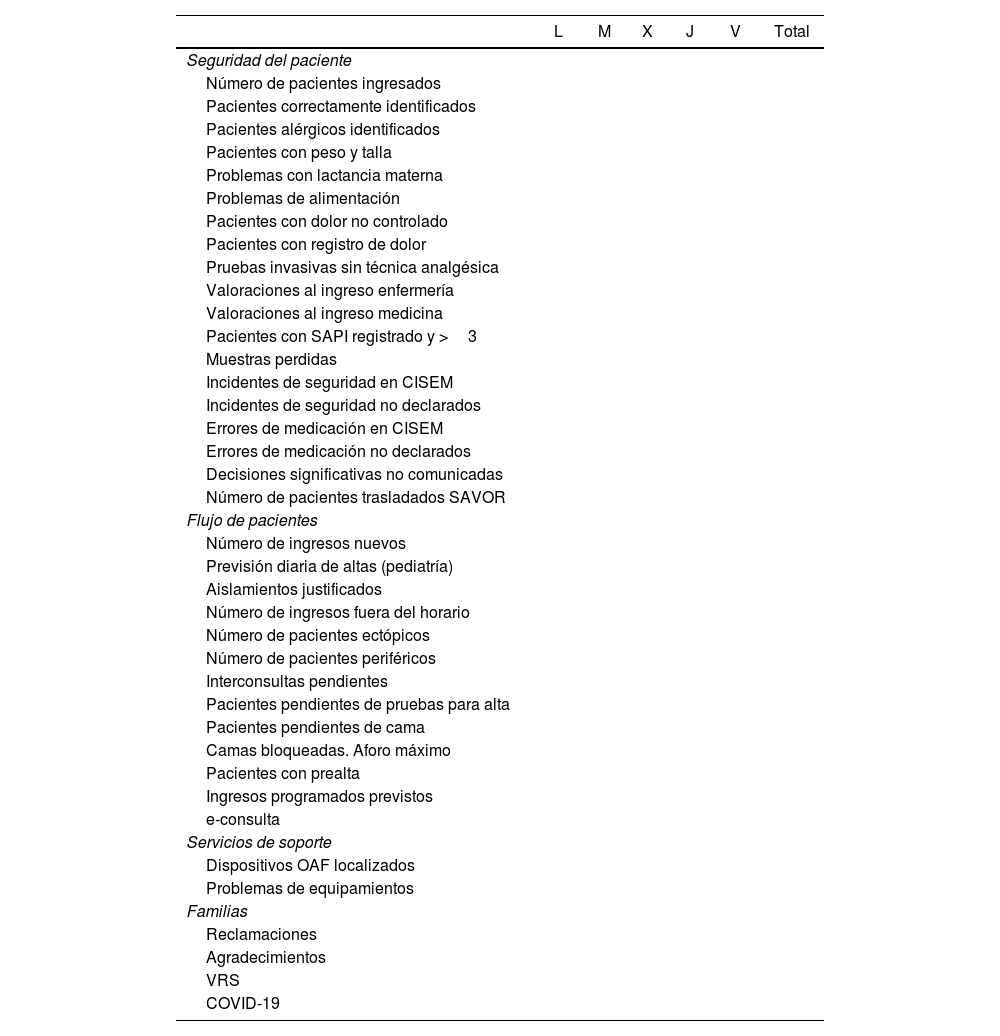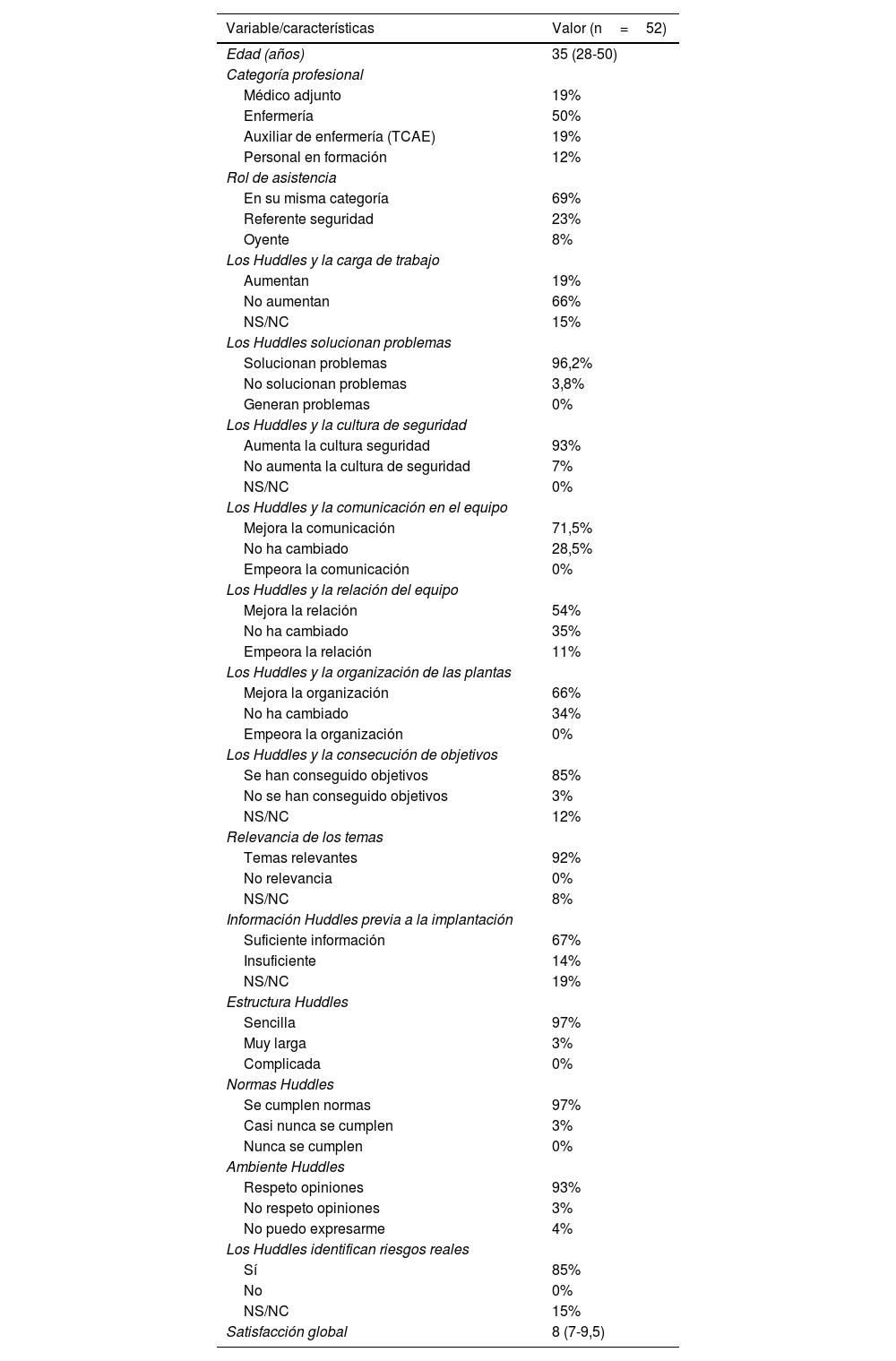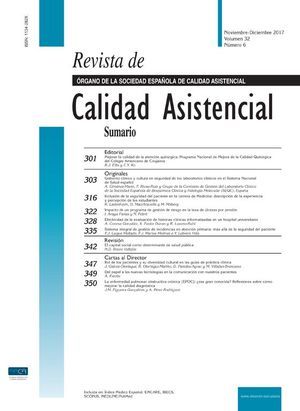En 2017 la Joint Comission propuso las reuniones «Huddle» como indicador de calidad asistencial. Son reuniones diarias, breves, del equipo multidisciplinar, para compartir los problemas de seguridad de las últimas 24h, y anticipar riesgos. Los objetivos fueron describir los eventos de seguridad más frecuentes en las plantas de pediatría, implantar mejoras en la seguridad de los pacientes, mejorar la comunicación del equipo, implantar los protocolos de seguridad internacional y medir la satisfacción del personal implicado.
Material y métodosDiseño prospectivo, longitudinal y analítico (junio 2020-septiembre 2022), con una intervención educativa previa. Se recogieron incidentes de seguridad, datos relacionados con identificación inequívoca, registro de alergias, de dolor, de la escala de detección precoz del deterioro (SAPI) y la escala de transmisión segura de la información (SBAR). Se evaluó el grado de satisfacción de los profesionales.
ResultadosSe registraron 348 incidentes de seguridad. Destacaron los errores de prescripción/administración de fármacos (n=103), especialmente aquellos relacionados con medicación de alto riesgo: paracetamol (n=14), (×10 dosis de paracetamol; n=6) insulina (n=6), potasio (n=5) y mórficos (n=5). Se objetivó una mejoría en los registros: dolor 5 vs. 80% (p<0,01), SAPI 5 vs. 70% (p<0,01), SBAER 40 vs. 100% (p<0,01), identificación inequívoca del paciente 80 vs. 100%; (p<0,01) y en aplicación de técnicas analgésicas 60 vs. 85% (p=0,01). En la encuesta a los profesionales se obtuvo un grado de satisfacción 8 (7-9,5)/10.
ConclusionesLos Huddle nos permitieron conocer los eventos de seguridad e implantar mejoras, aumentar la seguridad de los pacientes y mejoraron la comunicación y la relación del equipo multidisciplinar.
In 2017, the Joint Commission proposed daily meetings called “huddle” as an indicator of quality of care. They are brief daily meetings of the multidisciplinary team, where security problems of the last 24h are shared and risks are anticipated. The objectives were to describe the most frequent safety events in Pediatric wards, implement improvements in patient safety, improve team communication, implement international safety protocols, and measure the satisfaction of the staff involved.
Material and methodsProspective, longitudinal and analytical design (June 2020–February 2022), with previous educational intervention. Safety incidents, data related to unequivocal identification, allergy and pain records, data from the Scale for the Early Detection of Deficiencies (SAPI) and the Scale for the Secure Transmission of Information (SBAR) were collected. The degree of satisfaction of the professionals was evaluated.
ResultsThree hundred forty-eight security incidents were recorded. Medication prescription or administration errors stood out (n=103). Drug prescription or administration errors stood out (n=103), especially those related to high-risk medication: acetaminophen (n=14) (×10 doses of acetaminophen; n=6), insulin (n=6), potassium (n=5) and morphic (n=5). An improvement was observed in the pain record; 5% versus 80% (P<.01), in the SAPI registry 5% versus 70% (P<.01), in SBAER scale 40% vs 100% (P<.01), in unequivocal identification of the patient 80% versus 100%; (P<.01) and in the application of analgesic techniques 60% versus 85% (P=.01). In the survey of professionals, a degree of satisfaction of 8 (7–9.5)/10 was obtained.
ConclusionsHuddles made it possible to learn about security events in our environment and increase the safety of hospitalized patients, and improved communication and the relationship of the multidisciplinary team.















